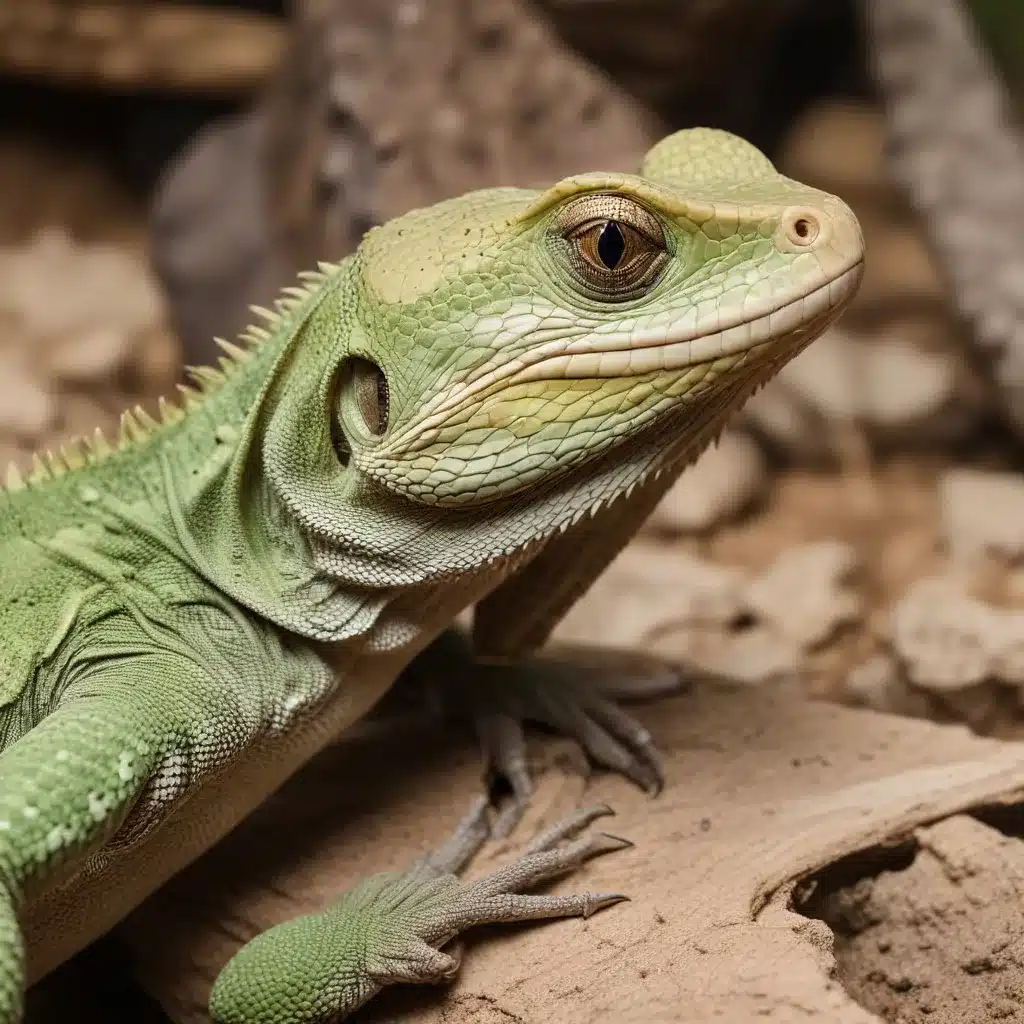
Unlocking the Potential of Reptile Enrichment
Reptiles have long been captivating creatures, drawing the interest of hobbyists and enthusiasts alike. However, as the popularity of exotic reptiles as pets has grown, it has become increasingly important to ensure their well-being and provide them with an environment that caters to their natural behaviors and needs. One crucial aspect of reptile care that is often overlooked is the importance of behavioral enrichment.
Behavioral enrichment refers to the process of enhancing an animal’s physical and psychological well-being by providing them with opportunities to engage in natural behaviors and experience a variety of stimuli. For reptiles, this can involve introducing new elements to their enclosure, encouraging exploration, and promoting activities that mimic their wild counterparts. By incorporating these strategies, reptile owners can not only improve the overall health and happiness of their pets but also foster a deeper understanding and appreciation for these remarkable animals.
Understanding Reptile Behavior and Needs
Reptiles, with their diverse species and unique characteristics, have a wide range of behavioral and environmental requirements. From the burrowing habits of certain snake species to the basking needs of iguanas, each reptile has evolved to thrive in specific ecological niches. Recognizing and catering to these natural behaviors is essential for providing optimal care and ensuring the well-being of captive reptiles.
One of the key factors to consider when implementing behavioral enrichment is the natural history and habitat preferences of the species. Reptiles that are naturally inclined to explore, climb, or burrow will require a more complex and varied enclosure setup to satisfy these innate drives. Additionally, factors such as temperature, humidity, and lighting play a crucial role in maintaining the appropriate physiological conditions for a reptile’s health and welfare.
Enrichment Strategies for Captive Reptiles
To create an enriching environment for captive reptiles, reptile owners and enthusiasts can employ a variety of techniques and strategies. These approaches not only enhance the reptile’s quality of life but also promote natural behaviors and reduce the risk of stress-related health issues.
Habitat Complexity
One of the most fundamental aspects of behavioral enrichment is the creation of a complex and stimulating habitat. This can involve incorporating a variety of hiding spots, climbing structures, and textured surfaces that encourage exploration and natural behaviors. For example, adding branches, logs, or artificial plants can provide opportunities for climbing and basking, while incorporating substrate that allows for burrowing can satisfy the needs of fossorial species.
Sensory Stimulation
Reptiles possess a keen sense of sight, smell, and touch, and providing opportunities for sensory engagement can greatly enhance their well-being. This can include introducing novel objects or scents, rotating hide boxes or basking areas, and even incorporating audiovisual stimuli, such as nature sounds or video recordings of natural environments.
Feeding Enrichment
Feeding can be a significant source of enrichment for reptiles, as it allows them to engage in natural hunting and foraging behaviors. Strategies such as hiding food items, using puzzle feeders, or presenting prey in a way that mimics their natural environment can encourage problem-solving skills and promote a more natural feeding routine.
Social Interactions
While some reptile species are solitary in nature, others may benefit from social interactions, either with their own species or with their human caretakers. Providing opportunities for positive social interactions, such as supervised handling or the introduction of conspecifics (when appropriate), can contribute to the overall well-being of the animal.
Legal Considerations and Responsible Ownership
Alongside the importance of providing appropriate behavioral enrichment, reptile owners must also be mindful of the legal requirements and responsible ownership practices associated with exotic reptile species. These considerations are crucial not only for the well-being of the animal but also for the protection of the environment and public safety.
Regulatory Frameworks
Depending on the region, there may be specific laws and regulations governing the ownership, breeding, and sale of exotic reptiles. It is essential for reptile enthusiasts to familiarize themselves with the relevant local, state, or federal requirements to ensure compliance. This may include obtaining the necessary permits, following guidelines for record-keeping, and adhering to regulations regarding the transport and sale of these animals.
Responsible Breeding and Trade
Responsible breeding and responsible trade practices are crucial for the conservation and welfare of exotic reptile species. Reptile breeders and sellers should prioritize the health and well-being of their animals, adhere to ethical guidelines, and avoid contributing to the illegal wildlife trade or the exploitation of vulnerable populations. This may involve collaborating with conservation organizations, implementing strict biosecurity measures, and providing comprehensive care information to new owners.
Commitment to Lifelong Care
Owning an exotic reptile is a long-term commitment that requires a deep understanding of the species’ needs and the ability to provide appropriate care for the lifetime of the animal. Reptile owners must be prepared to accommodate the specific housing, feeding, and veterinary requirements of their pets, as well as be willing to address any behavioral or health issues that may arise over the course of the animal’s life.
Conclusion
Behavioral enrichment is a crucial aspect of reptile care that can significantly enhance the welfare and thriving of captive reptiles. By understanding the unique behavioral and environmental needs of different reptile species, reptile enthusiasts can create stimulating and naturalistic enclosures that promote natural behaviors, reduce stress, and foster a deeper connection between the animal and its caretaker.
Moreover, responsible ownership and adherence to legal requirements are essential for the conservation and well-being of exotic reptiles. By prioritizing the welfare of these remarkable creatures and following best practices in reptile care, breeding, and trade, reptile enthusiasts can contribute to the long-term sustainability of these species and the continued appreciation of their wonders.
Explore the world of exotic reptiles and discover the joy of providing your pet with an enriching and thriving environment. Visit Exotic Reptiles for Sale to learn more about responsible reptile ownership and find the perfect reptile companion for your home.


